detail profile shinobu hashimoto
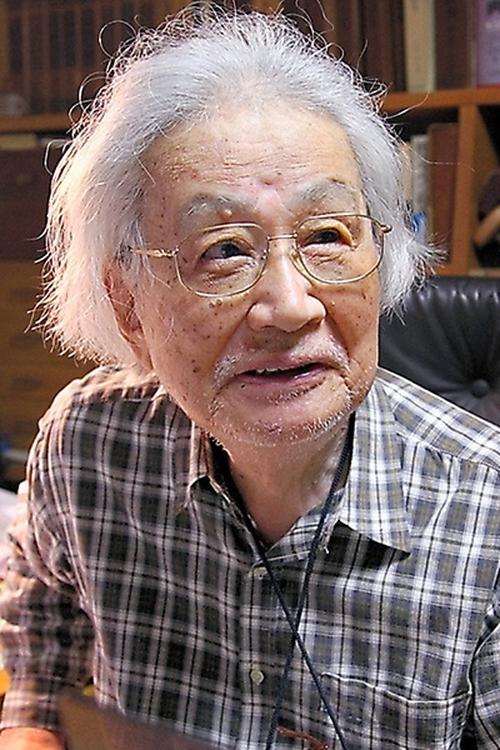
Shinobu Hashimoto
Синобу Хасимото
atau dikenal sebagai
Riwayat Hidup
Shinobu Hashimoto (Japanese: 橋本 忍, Hashimoto Shinobu; 18 April 1918 – 19 July 2018) was a Japanese screenwriter, film director and producer.
A frequent collaborator of Akira Kurosawa, he wrote the scripts for such internationally acclaimed films as Rashomon and Seven Samurai.
Info Pribadi
Peran Yang Di Mainkan Shinobu Hashimoto
 London 1953 Mr Williams a veteran civil...
London 1953 Mr Williams a veteran civil...Living 2022
London, 1953. Mr. Williams, a veteran civil servant, is an important cog within the city's bureaucracy as it struggles to rebuild in the aftermath of World War II. Buried under paperwork at the office and lonely at home, his life has long felt empty and meaningless. Then a devastating medical diagnosis forces him to take stock, and to try and grasp some fulfilment before it passes permanently beyond reach.
 Looking to mine for gold greedy...
Looking to mine for gold greedy...The Magnificent Seven 2016
Looking to mine for gold, greedy industrialist Bartholomew Bogue seizes control of the Old West town of Rose Creek. With their lives in jeopardy, Emma Cullen and other desperate residents turn to bounty hunter Sam Chisolm for help. Chisolm recruits an eclectic group of gunslingers to take on Bogue and his ruthless henchmen. With a deadly showdown on the horizon, the seven mercenaries soon find themselves fighting for more than just money once the bullets start to fly.
 A young farmer assembles a band...
A young farmer assembles a band...Battle Beyond the Stars 1980
A young farmer assembles a band of diverse mercenaries to defend his peaceful planet from an evil tyrant.
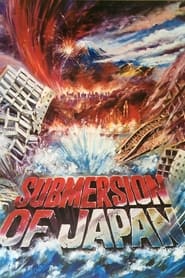 A team of geophysicists investigating seismic...
A team of geophysicists investigating seismic...Submersion of Japan 1973
A team of geophysicists investigating seismic activity on the seafloor discover that the islands of Japan, after suffering from massive volcanic eruptions and earthquakes, will be pulled into the ocean, killing millions.
 This film follows the daily lives...
This film follows the daily lives...Dodes'ka-den 1970
This film follows the daily lives of a group of people barely scraping by in a slum on the outskirts of Tokyo. Yet as desperate as their circumstances are, each of them—the homeless father and son envisioning their dream house; the young woman abused by her uncle; the boy who imagines himself a trolley conductor—finds reasons to carry on.
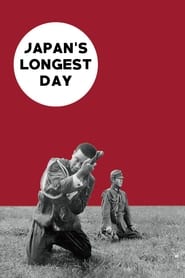 Following the detonation of the atomic...
Following the detonation of the atomic...Japan's Longest Day 1967
Following the detonation of the atomic bombs on Hiroshima and Nagasaki, the Japanese military and the government clash over the demand from the Allies for unconditional surrender. Minister of the Army Anami leads the military officers who propose to fight on, even to the death of every Japanese citizen. Emperor Hirohito, however, joins with his ministers in asking the unthinkable, the peaceful surrender of Japan. When the military plots a coup to overthrow the Emperor's civilian government, Anami must face the choice between his desires and loyalty to his Emperor.
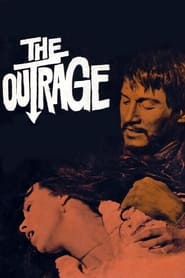 At a disused railway station three...
At a disused railway station three...The Outrage 1964
At a disused railway station, three men -- a con artist, a preacher, and a prospector -- discuss the recent trial and sentencing of the outlaw Juan Carrasco for the murder of a man and the rape of his wife. In their recounting, the three explore the conflicting testimonies of the parties involved in the crimes. Disconcerting new questions arise with each different version of the event.
 Downonhisluck veteran Tsugumo Hanshir enters the...
Downonhisluck veteran Tsugumo Hanshir enters the...Harakiri 1962
Down-on-his-luck veteran Tsugumo Hanshirō enters the courtyard of the prosperous House of Iyi. Unemployed, and with no family, he hopes to find a place to commit seppuku—and a worthy second to deliver the coup de grâce in his suicide ritual. The senior counselor for the Iyi clan questions the ronin’s resolve and integrity, suspecting Hanshirō of seeking charity rather than an honorable end. What follows is a pair of interlocking stories which lay bare the difference between honor and respect, and promises to examine the legendary foundations of the Samurai code.
 In this loose adaptation of Hamlet...
In this loose adaptation of Hamlet...The Bad Sleep Well 1960
In this loose adaptation of "Hamlet," illegitimate son Kôichi Nishi climbs to a high position within a Japanese corporation and marries the crippled daughter of company vice president Iwabuchi. At the reception, the wedding cake is a replica of their corporate headquarters, but an aspect of the design reminds the party of the hushed-up death of Nishi's father. It is then that Nishi unleashes his plan to avenge his father's death.
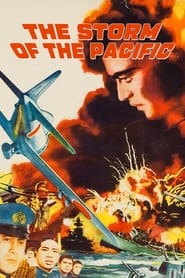 Lt Koji Kitami is a navigatorbombardier...
Lt Koji Kitami is a navigatorbombardier...The Storm of the Pacific 1960
Lt. Koji Kitami is a navigator-bombardier in Japan's Naval Air Force. He participates in the Japanese raid on the U.S. Naval Base at Pearl Harbor in 1941 and is welcomed with pride in his hometown on his return. As Japan racks up victory after victory in the Pacific War, Kitami is caught up in the emotion of the time and fights courageously for the standard of Japanese honor. But his assuredness of his government's righteousness is shaken after the Japanese navy is defeated in the debacle of Midway.
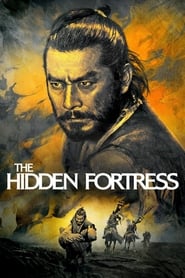 In feudal Japan during a bloody...
In feudal Japan during a bloody...The Hidden Fortress 1958
In feudal Japan, during a bloody war between clans, two cowardly and greedy peasants, soldiers of a defeated army, stumble upon a mysterious man who guides them to a fortress hidden in the mountains.
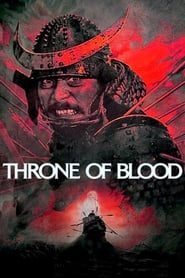 Returning to their lords castle samurai...
Returning to their lords castle samurai...Throne of Blood 1957
Returning to their lord's castle, samurai warriors Washizu and Miki are waylaid by a spirit who predicts their futures. When the first part of the spirit's prophecy comes true, Washizu's scheming wife, Asaji, presses him to speed up the rest of the spirit's prophecy by murdering his lord and usurping his place. Director Akira Kurosawa's resetting of William Shakespeare's "Macbeth" in feudal Japan is one of his most acclaimed films.
 Kiichi Nakajima an elderly foundry owner...
Kiichi Nakajima an elderly foundry owner...I Live in Fear 1955
Kiichi Nakajima, an elderly foundry owner, is convinced that Japan will be affected by an imminent nuclear war, and resolves to move his family to safety in Brazil. His family decides to have him ruled incompetent and Dr. Harada, a Domestic Court counselor, attempts to arbitrate.
 Brimming with action while incisively examining...
Brimming with action while incisively examining...Rashomon 1950
Brimming with action while incisively examining the nature of truth, "Rashomon" is perhaps the finest film ever to investigate the philosophy of justice. Through an ingenious use of camera and flashbacks, Kurosawa reveals the complexities of human nature as four people recount different versions of the story of a man's murder and the rape of his wife.
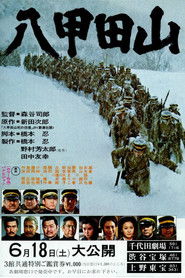 Two infantry regiments of the Imperial...
Two infantry regiments of the Imperial...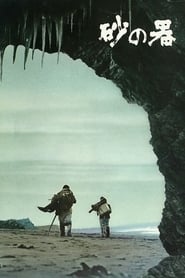 Two detectives are tasked to investigate...
Two detectives are tasked to investigate...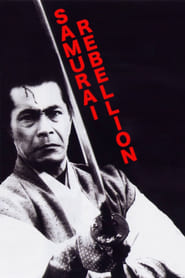 The mother of a feudal lords...
The mother of a feudal lords...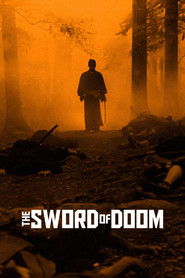 Ryunosuke a gifted swordsman plying his...
Ryunosuke a gifted swordsman plying his...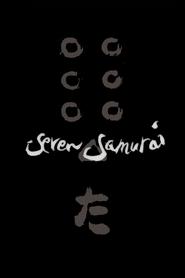 A samurai answers a villages request...
A samurai answers a villages request...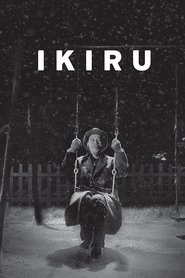 Kanji Watanabe is a middleaged man...
Kanji Watanabe is a middleaged man...